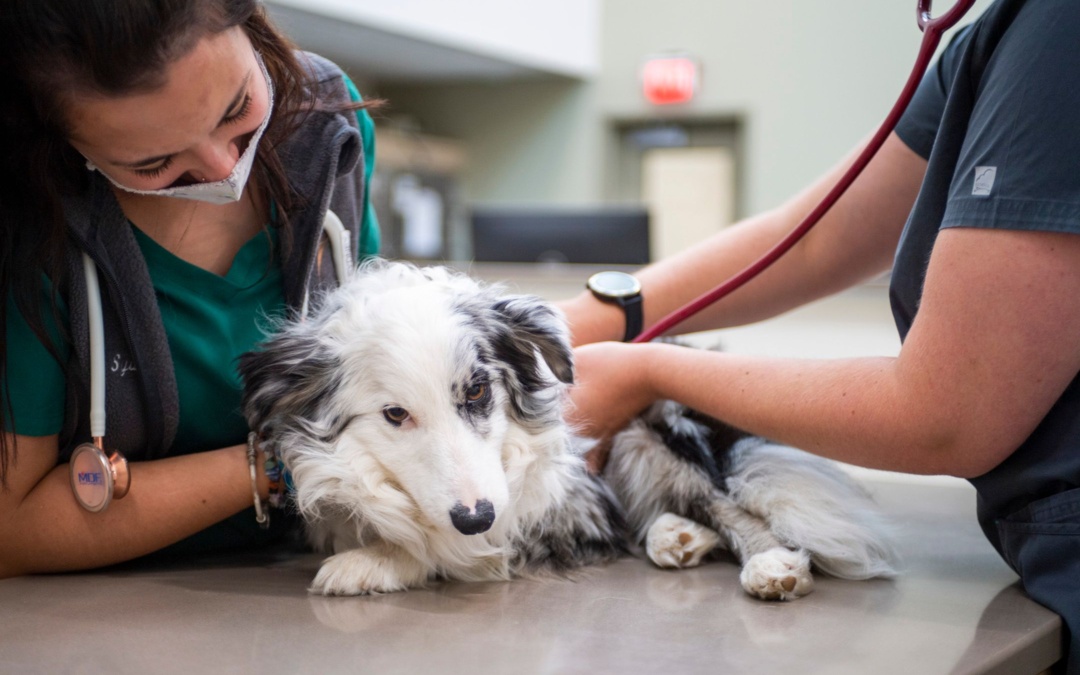It can be scary when your pet is sick or hurt. As pet parents, you want to do what’s best for them at that moment – but how do you know what’s best? How can you tell the difference between something that can wait and something that needs urgent attention?
You might think, especially if it’s after your veterinarian’s normal clinic hours – that it’s better to err on the side of caution and get to your nearest emergency veterinary hospital. However, depending on the problem your pet is experiencing, it could take time – hours, even – before veterinary care can be given. Emergency veterinary hospitals across the country, especially 24-hour critical care facilities like BEVS, are seeing a huge influx of patients, meaning they have to carefully assess each case as it arrives and prioritize the most life-threatening first (just like at emergency rooms for humans).
To help you understand, here is our triage chart illustrating how we’re handling ill or injured pets who arrive at our ER (you can also review the full chart here):
Level 1: Critical – Life-Saving Measures Must Be Administered Immediately
- Allergic reactions
- Birthing difficulties
- Bleeding (excessive)
- Bloat (GVD)/swollen abdomen
- Blocked cat
- Breathing difficutly
- Broken bone
- Choking
- Collapse
- Euthanasia/End-of-life care
- Eye trauma
- Heatstroke
- Hit by car
- Poisoning
- Seizures (active)
- Trauma
Level 2: Urgent – Wait Times May Occur Based on Amount of Level 1 Cases
- Bowel obstruction/constripation
- Eye irritation
- Pain/restless
- Urinary tract problems
- Vomiting/diarrhea
Level 3: Important – Wait Times May Be Prolonged Based on Amount of Level 1 and 2 Cases
- Abcess
- Anorexia/not eating
- Chronic diseases
- Ear infection
- Lameness
- Minor wounds
- Skin conditions
Please know this list doesn’t include all conditions and symptoms. When in doubt, please call us at 802.863.2387. Our 24/7 emergency care team is available around the clock to help pet owners recognize emergency symptoms and provide advice on the next steps if symptoms progress.
Important Steps for Toxin Ingestion or Poisoning
We recommend that all pet parents become familiar with signs of poisoning:
- Vomiting or diarrhea, particularly with blood present
- Excessive drooling
- Lack of appetite
- Lethargy or restlessness
- Pale gums
- Seizure or tremors
- Collapse
If your pet eats something poisonous, you’ll need to act fast. The smaller the pet, the less toxin it takes to cause serious illness or even death. It’s essential to try to identify what your pet has ingested. Call your primary care veterinarian or the ASPCA Animal Poison Control Center 24-hour hotline at (888) 426-4435 (a fee may apply). At the Poison Control Center, expert toxicologists will consider the age and health of your pet, what and how much they ate, and then make a recommendation for the next steps.
BEVS Is Here 24/7 To Help Your Pet
Hopefully, your family will never need to use the emergency resources you gather. But if you do, or if your dog or cat needs emergency veterinary care, we are here to help. BEVS is the only 24/7 veterinary emergency and specialty hospital in the state of Vermont, and no appointment is ever necessary for emergency care. If possible, please call us first at 802.863.2387 so we can prepare our team and advise you on what will happen when you arrive.

